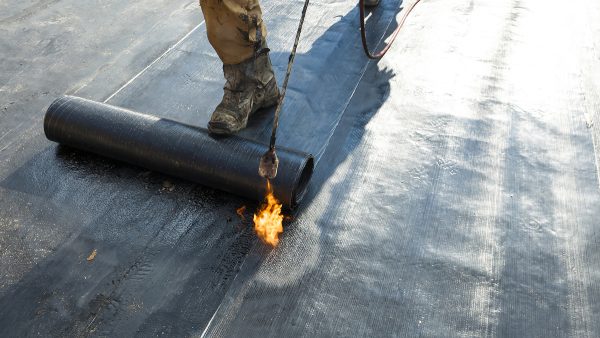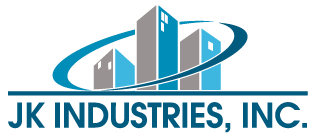Which type of waterproofing is best for commercial buildings?

It’s safe to say that as much as humans need water, commercial buildings must be protected from it. Water corrodes by finding the tiniest crack or seam and working its way in over time. It can corrode the steel in concrete, soften plaster, and bubble up your paint. With all these threats, waterproofing can be the difference between paying for maintenance care and shouldering sizeable new construction costs.
But what type of waterproofing you need depends on your space and build needs. We’ll review some of your options below, but if you want customized help, JK Industries is here to lend a hand.
Cementitious coating: Comes in a powder form that gets mixed with water before installation. The powder is comprised of sand, silica materials, and a combination of organic and inorganic particles. They resist mold and mildew, so they are perfect for fountains and basements.
Polyurethane: A deep-sinking waterproofing material that can be used on various materials. Polyurethane applies like a thin paint, but it hardens to form a durable topcoat on the surface. We use this on everything from roofs to floors, as it is very versatile.
Rubberized asphalt: Typically used on commercial roofs, this material comes in flexible sheets or liquid coatings that shield against precipitation. Rubberized asphalt dries quickly and creates a firm bond with roofing materials. We use it for below-grade waterproofing, like in basements. We also use it in parking garages, balcony decks, and tunnels.
EPDM: This is another rubber material often used for roof waterproofing. It can expand and contract with temperature changes, making it less susceptible to cracking than other materials. We use it on basements, roofs, terraces, expansion joints, and facades. It is an excellent tool for waterproofing many parts of a building.
Bituminous membrane: This is a mixture of bitumen and other materials that apply at a tar-like consistency. This hardens to form a durable vapor barrier for the building and is less expensive than many other applications. We use this for waterproofing roofs.
PVC membrane: PVC is one of the more expensive waterproofing materials on the market, but it has long-term durability and can be reinforced for extra strength. It is best put to use on roofs and walls.
Thermoplastic: Thermoplastic comes in sheets and panels. The sheets are heated to create a semi-solid state, bonding with the surface as they cool. Thermoplastic is pricier, but it comes with a 50+ year lifespan. We apply it to asphalt and concrete.
It can be challenging to understand the various uses and choose the best materials for a commercial building, but JK Industries has the expertise to keep your building safe and water-free.
